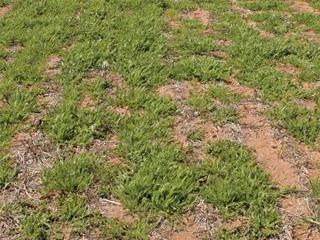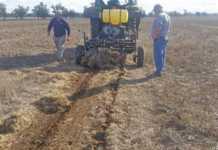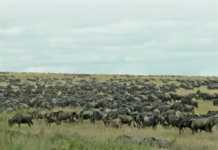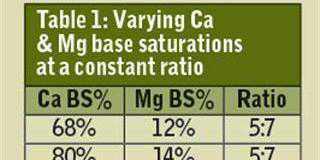
Legumes enjoy a symbiotic relationship with Rhizobium bacteria. The plant feeds the bacteria and in return the bacteria capture free nitrogen from the air, which the plant mobilises for growth. It’s a prime example of biological farming, which is all about working with nature to reduce expensive inputs. Unfortunately, nothing is for free.
Inoculation, or bonding Rhizobium bacteria with the plant roots, requires know-how and tender loving care. As pointed out in previous articles, the bacteria are easily wiped out by exposure to heat and lack of moisture. And if the inoculation process is not successful, the legume’s growth is impaired. The good news is that it seems that a near fail-proof series of inoculants developed in Australia will be available to SA farmers in 2014.
Too late
Perth-based scientist Angelo Loi works for the agricultural division of the government of Western Australia. He visits farmers in the region and helps them solve their farming problems. Angelo has a passion for legumes. Western Australia is a winter rainfall region, and farmers use legumes in rotation with cash crops, mainly small grains and canola. As far as the legumes are concerned, the emphasis is on annual winter legumes, such as serradella and medics. From the start of the first winter rains in May farmers scramble to get their cash crops planted.
Once this is done, they plant the legume pastures. As a result, these are often planted too late to provide a bulk of pasture before the rainy season ends, which is usually in September. Angelo reasoned that the resulting pasture shortage at this critical time of the year could be solved by planting inoculated legume
Fair
seed into dry soil before the first winter rains. When he spoke to a microbiologist colleague about the idea of producing an inoculant that would survive hot, dry soil for several weeks, Angelo was laughed at for even thinking such a thing was possible.
Disintegrating capsules
Unperturbed, he worked out that if he could surround inoculated seed with an insulating material that held moisture and then seal the outer layer to retard water loss, it might be enough to keep the Rhizobia alive until the first rains arrived. He also realised that the ‘capsule’ would have to be able to disintegrate in wet soil so that the seed could germinate.
Angelo started working in his kitchen at home. Once he had created the ‘capsules’, he put them in the oven for 12 hours. He then set the oven at a temperature that matched the hot sandy soil temperatures. Then he took his ‘baked capsules’ back to his sceptical colleague.
When he examined the Rhizobia, Angelo’s microbiologist friend found that they were very much alive. Further product development and field testing has led to the manufacture of a commercial product that will greatly improve the overall success rate of inoculating legumes. Angelo’s breakthrough has significant importance throughout the agricultural world.
John Fair is a pasture consultant. He heads up Fair’s Biofarm Assist, and can be contacted on 058 622 3585 or [email protected].













